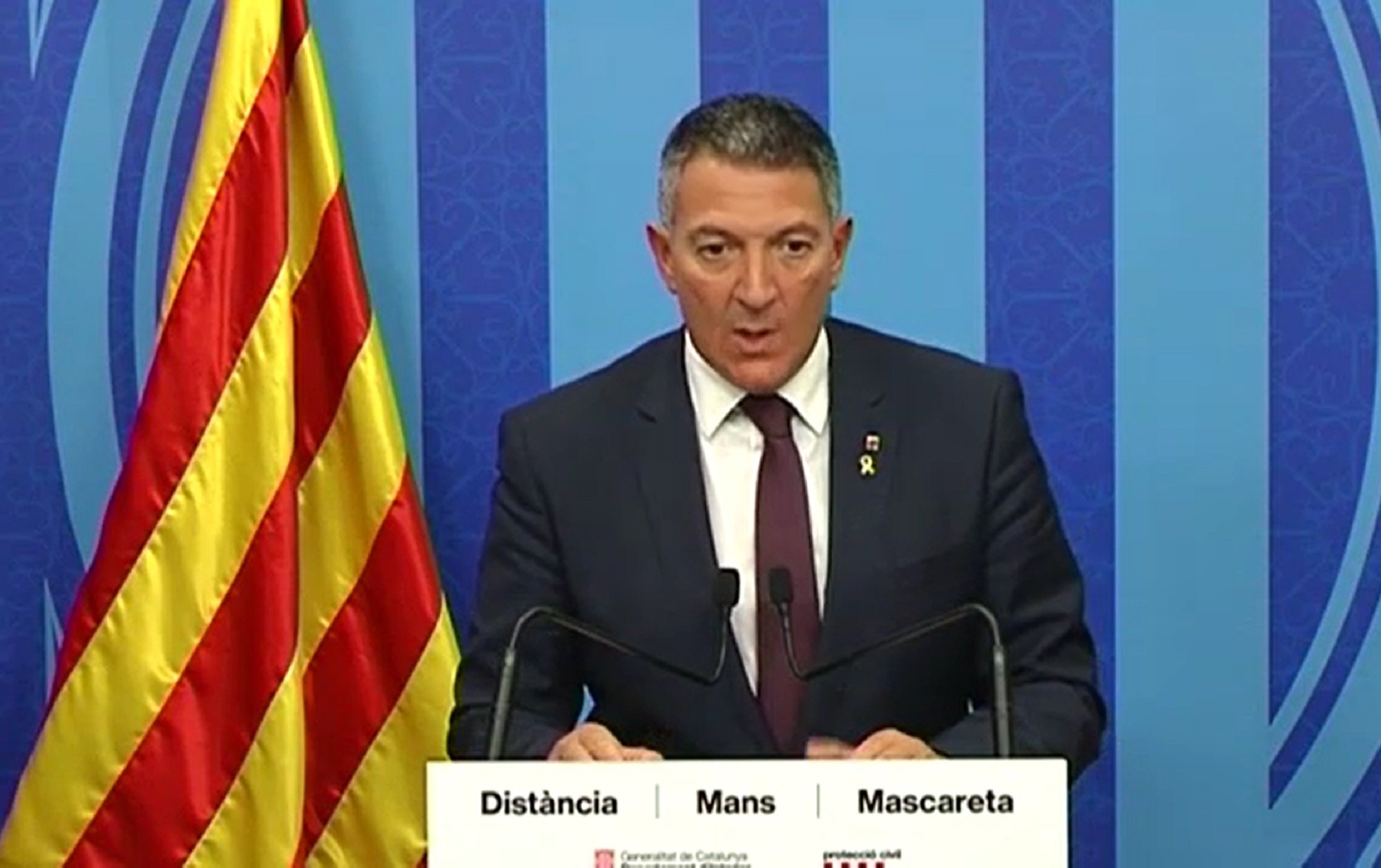Curfew in Catalonia from 10 pm to 6 am. That is the main measure brought into force from Sunday 25th October to try to curb the surge in coronavirus infections, as detailed by the Catalan minister of interior, Miquel Sàmper after the meeting of the Procicat on Sunday afternoon. “Nighttime lockdown has become indispensable,” the minister stated, mentioning issues such as botellon street parties and other gatherings that have occurred in recent days, even though they were already prohibited.
‼️ Des d’avui entrarà en vigor la restricció de mobilitat nocturna entre les 22.00 i les 06.00. Els establiments oberts al públic hauran de tancar a les 21.00 hores. pic.twitter.com/ualQxqpL19
— Salut (@salutcat) October 25, 2020
"The restriction on night mobility between 10pm and 6am will take effect from today [Sunday]. Establishments open to the public must close at 9 pm."— Catalan Health Service.
What the state of alarm means in Catalonia
A state of alarm came into force on Sunday afternoon throughout Spain, once it was published in the government gazette. The state of alarm is a Spanish legal device used to grant special powers and restrictions in an emergency, and in this case the declaration includes a minimum curfew from 11pm to 6am throughout the Spanish state, and allows autonomous communities a margin of extending or reducing these time limits by one hour.
In the case of Catalonia, the limitation of night mobility will be from 10pm to 6am, and came into force on Sunday night.
These are the measures which the autonomous governments will now be able to decree under this second Spain-wide state of alarm:
- Perimeter confinement of the autonomous community - that is, preventing entry and exit to Catalonia
- Restriction of public and private gathering to maximum of six people
- Limitation of capacity in religious ceremonies
- Restriction of nighttime mobility
Catalan minister Samper says that from the Generalitat government's point of view the Spanish decree "is insufficient" because it only allows the Catalan authorities to apply the nighttime mobility limitation, while some other restrictions it includes were already regulated, such as the limitation on gathering size to 6 people. “From the Catalan government we want to do more,” the minister assured. Sources in the Catalan government say the imposition of a full lockdown at weekends is an option under consideration.
The Spanish governnent says it wants to prolong this state of alarm for six months - until May 2021. Under Spanish law, a state of alarm can be initially declared by government decree but needs to be approved by parliament to continue for more than two weeks. Thus, the Spanish Congress will decide the question within the next two weeks.
Exceptions to curfew rules
With regard to the curfew, the Catalan government has listed a series of exceptions which will be valid reasons for being on the street during the hours of curfew. They include journeys to return home and circulation of essential services. But note that in these cases proof of the reason for being out is required, and for this purpose the Catalan government has introduced a mobility certificate, which you can generate on line. It is similar to the mobility certificate brought in for voluntary use in Catalonia in spring, but with updated catagories.
Here are all the exceptions, under which mobility during hours of curfew is allowed, for unavoidable and duly justified situations:
- For urgent health attention or urgent trips to the pharmacy.
- Travel to and from workplaces when distance working is not possible. A certificate from the company will be required.
- Mobility of essential services, including health and social services.
- To give care to elderly and dependent people.
- Return home to your usual residence after a trip.
- Return home from educational or cultural events or shows (These activities have been given permission to continue until 10pm, and those attending are expected to be at home by 11pm. Tickets should be retained where applicable)
- Within curfew, pet owners can take their animals for a walk only between 4am and 6am for the animal's needs, close to home. Owners are asked to limit walks to the maximum, and they must always be duly justified.
- Home delivery services for food working out of restaurants may continue to operate until 10pm.
Other establishments open to the public will have to close at 9pm in the evening. Current restrictions on bars and restaurants, limits on capacities and on cultural and leisure activities will all continue.
As for public transport, there are currently no new timetable regulations.
Terminology
Catalan vice president Pere Aragonès on Friday said he preferred to speak of "nighttime mobility" restrictions rather than a curfew. English speakers may already have seen a variety of terms in use. The Health department message below refers to confinament nocturn - "nighttime lockdown". The usual term for curfew in Castilian is toque de queda, while in Catalan you may see reference to toc de queda, seny de lladre, and also cobrefoc (literally "cover fire", has the same roots as the English "curfew").
❗ Avui a les 22 h entra en vigor el confinament nocturn per contenir els brots de COVID-19:
— Salut (@salutcat) October 25, 2020
🕙 De 22 h - 6 h:
❌ No es pot circular pel carrer.
👉 Excepte per a: cura de gent gran o nens, feina, retorn al domicili o causa de força major.
🔗 https://t.co/gmh0U9Zv2j pic.twitter.com/WBo8xKVvw3

